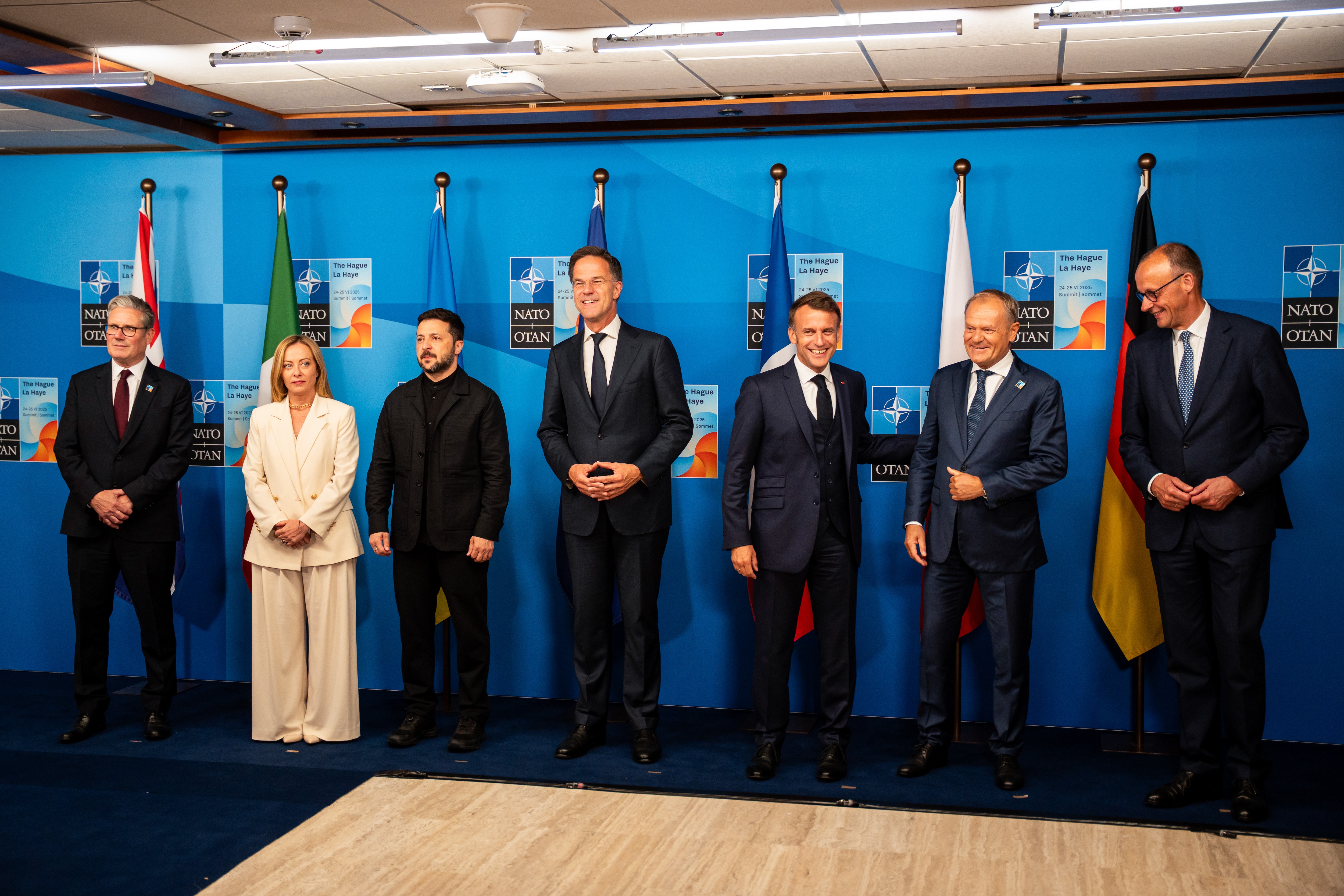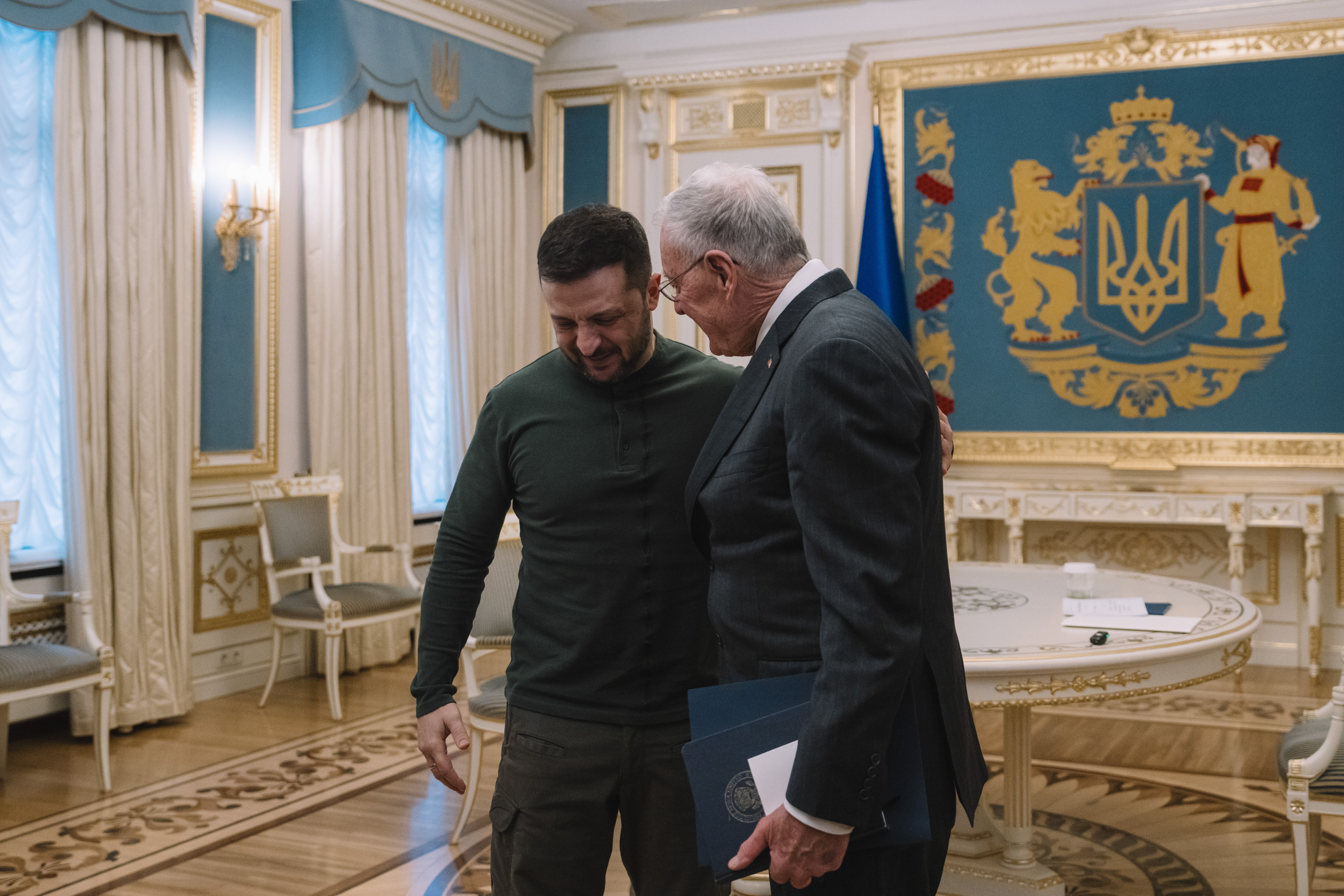
Ukraine's allies gathering in Rome to discuss the nation's postwar revival will be forced to grapple with the reality that such a prospect is more remote than ever as Russia unleashed its latest deadly air strike on Kyiv.
Two people were killed and 16 wounded as around 400 drones, as well as 18 missiles including ballistic ones, targeted the Ukrainian capital and other regions, President Volodymyr Zelenskiy said on X Thursday. He described the air raid, which lasted for almost 10 hours, as “a clear escalation of terror by Russia.”
The second consecutive night of relentless attacks follows Moscow's refusal to discuss a ceasefire. US President Donald Trump this week excoriated Russian counterpart Vladimir Putin for “killing too many people” and pledged to send more weapons to Kyiv.
All of it sets back any planning for Ukraine's reconstruction after the war as Italian Prime Minister Giorgia Meloni hosts the fourth Ukraine Recovery Conference on Thursday. Instead, allies will regroup on how to muster resources so Ukraine can continue to repel Russia's invasion, currently in its fourth year.

Keir Starmer, Giorgia Meloni, Volodymyr Zelenskiy, Mark Rutte, Emmanuel Macron, Donald Tusk, and Friedrich Merz, left to right, at the NATO summit on June 24.
“The means of diplomacy are exhausted,” German Chancellor Friedrich Merz, who will attend the Rome meeting, told lawmakers in Berlin on Wednesday. He pilloried the Kremlin as a “criminal regime” that threatens Europe's political order — and said he'll do “everything” to keep assistance to Kyiv flowing.
The potential long-term commitment was laid bare by considerations in the European Union to set up a €100 billion ($117 billion) fund to assist Kyiv. It may be included in a proposal for the bloc's next seven-year budget, people familiar with the deliberations said. If accepted, the funds would start to be disbursed in 2028, they said on condition of anonymity.
Ukrainian Prime Minister Denys Shmyhal drove home the war-battered nation's current fiscal drain. In an online meeting Wednesday, he said 2026 “is challenging” — with a budget shortfall of more than $40 billion that needs to be compensated from external financing.
New Sanctions
The latest attacks — Russia also fired a record of some 730 drones as well as ballistic and cruise missiles overnight into Wednesday — came after Trump signaled that he would dispatch weaponry to Ukraine and said that he was “not happy” with the Russian leader. Just days earlier the US administration unexpectedly halted the deliveries.
“He's killing too many people, so we're sending some defensive weapons to Ukraine and I've approved it,” the US leader told reporters at a Cabinet meeting in Washington Tuesday.
Senate Majority Leader John Thune said Wednesday he expects a vote as soon as this month to place severe new sanctions on Russia.
Representing the US administration in Rome will be Keith Kellogg, the special envoy for Ukraine, who will also take part in a call with European leaders from the so-called coalition of the willing nations on the sidelines of the meeting. France's Emmanuel Macron and British Prime Minister Keir Starmer will join from the UK, where the French president is on a state visit.

Keith Kellogg, right, and Volodymyr Zelenskiy in Kyiv in February.
Zelenskiy said in the post that he will talk to allies “about additional funding for the production of interceptor drones and the supply of air defense systems for Ukraine.”
“Such Russian attacks must be met with a tough response,” he said. “And that is exactly what we will deliver.”
Separately, US Secretary of State Marco Rubio is scheduled to hold talks with his Russian counterpart, Sergei Lavrov, on Thursday on the sidelines of an Association of Southeast Asian Nations gathering in Kuala Lumpur.
Geopolitical shifts have affected post-war financing. BlackRock Inc. halted a search for investors to back a multi-billion-dollar recovery fund this year after Trump's reelection. Meant to be unveiled in Rome, it was close to securing initial support from entities backed by Germany, Italy and Poland, Bloomberg News reported this month.
BlackRock decided in January to pause talks with institutional investors as interest faltered amid increased uncertainty over Ukraine's future.
But Germany, which was often taken to task in the first years of the war for its cautious support, has remained steadfast. Merz, who took office in May, on Tuesday confirmed that his government is in talks with the US to secure Patriot air-defense systems for Ukraine.
Berlin is willing to provide Kyiv with two additional Patriot systems, including interceptor missiles, and cover the full costs for the much-needed deliveries, Bloomberg News reported last week.
Meloni, who has cultivated close ties with Trump, has been a vocal supporter of Kyiv in sharp contrast with the US leader. Though it has less fiscal room than Germany, Italy is preparing its 12th military aid package to Ukraine, officials said, with a value estimated in the hundreds of millions of euros.
Essential Business Intelligence, Continuous LIVE TV, Sharp Market Insights, Practical Personal Finance Advice and Latest Stories — On NDTV Profit.























